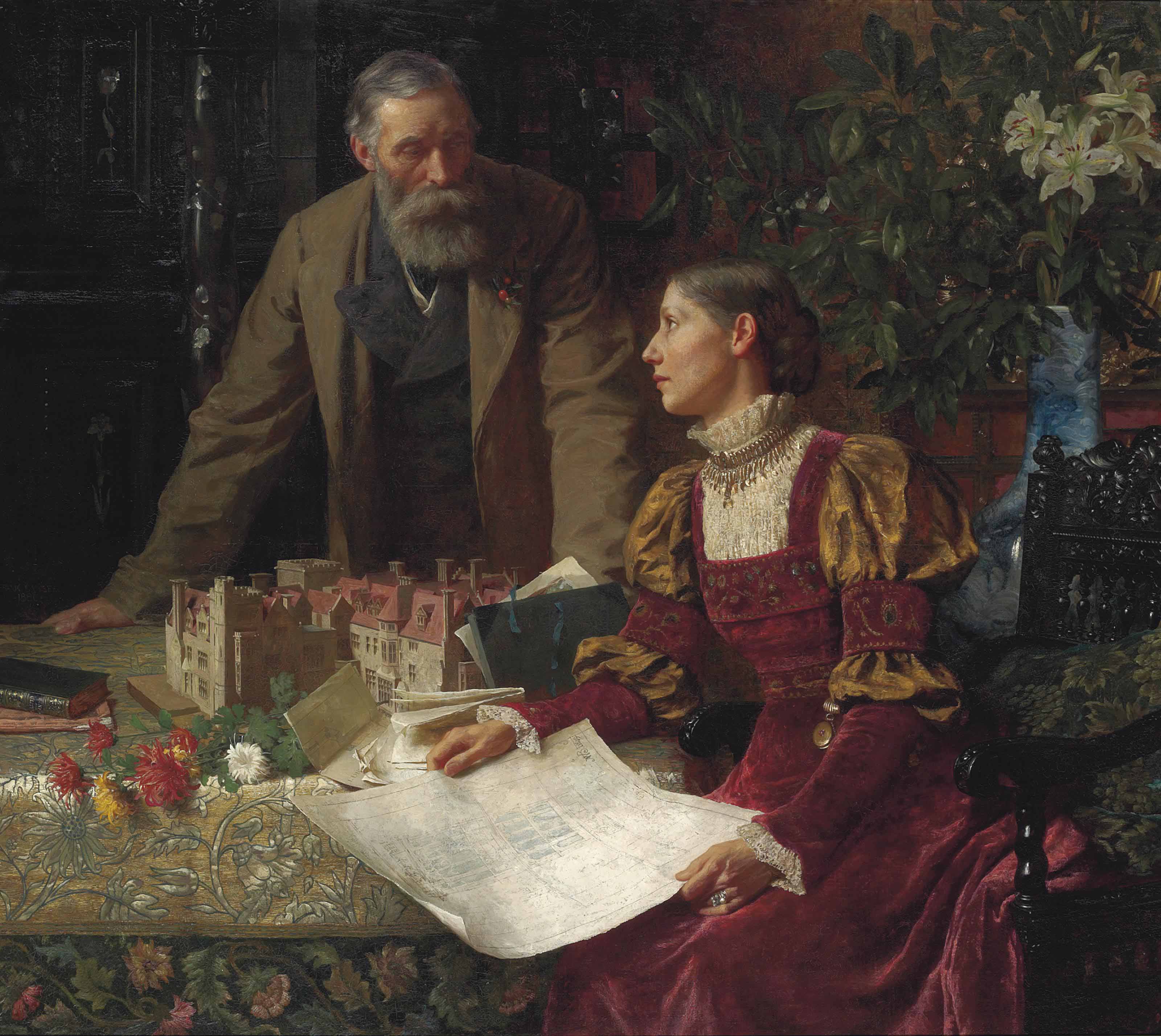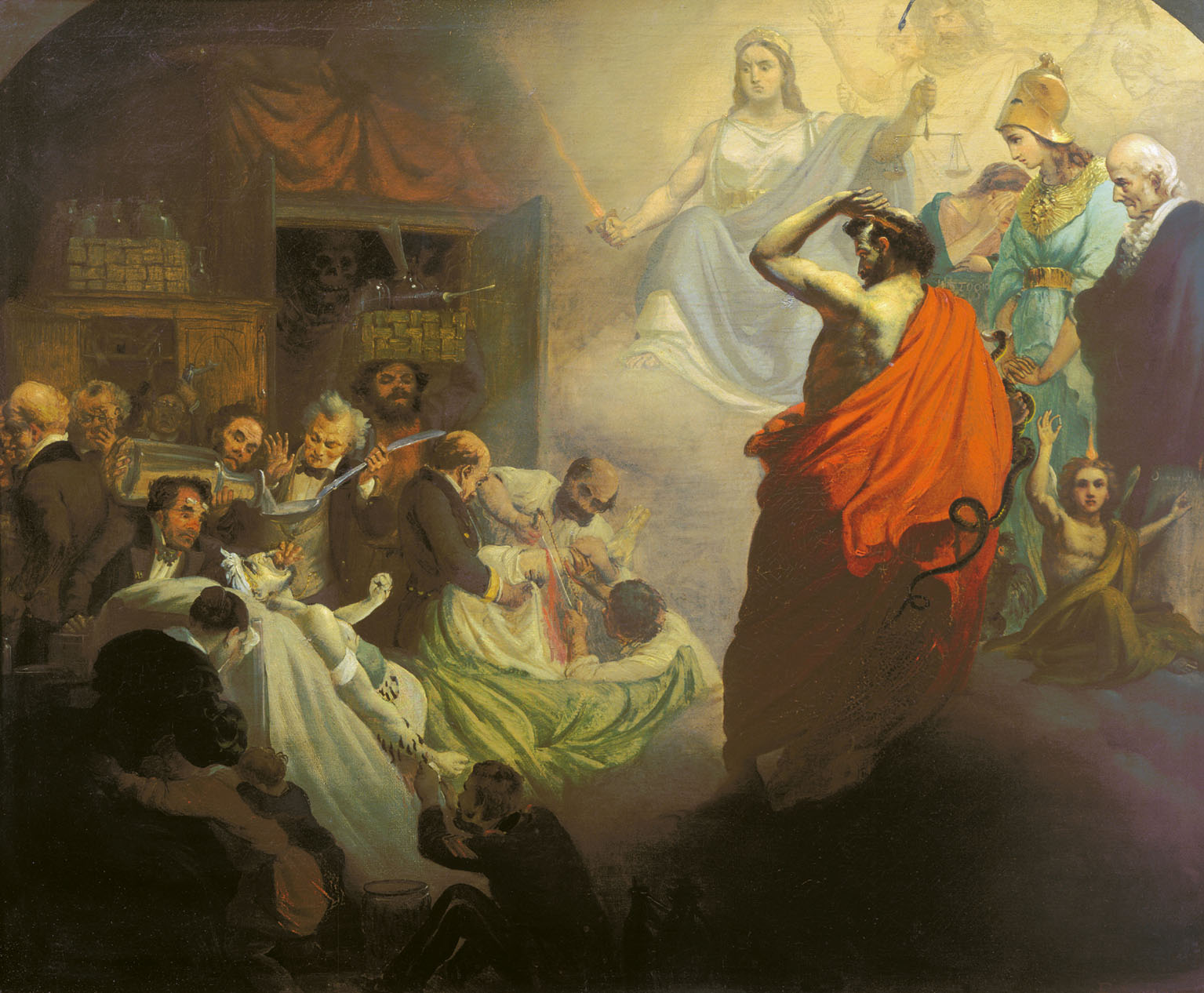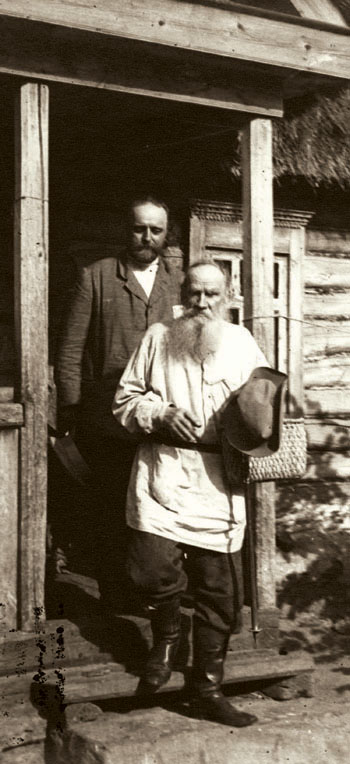|
Mary Everest Boole
Mary Everest Boole (11 March 1832 in Wickwar, Gloucestershire – 17 May 1916 in Middlesex, England) was a self-taught mathematician who is best known as an author of Didacticism, didactic works on mathematics, such as ''Philosophy and Fun of Algebra'', and as the wife of fellow mathematician George Boole. Her progressive ideas on education, as expounded in ''The Preparation of the Child for Science'', included encouraging children to explore mathematics through playful activities such as String art, curve stitching. Her life is of interest to feminists as an example of how women made careers in an Academia, academic system that did not welcome them. Life Mary Everest was born in England, the daughter of Reverend Thomas Roupell Everest, Rector of Wickwar, and Mary ''nee'' Ryall. Her uncle was George Everest, the surveyor and geographer after whom Mount Everest was named. She spent the first part of her life in France where she received an education in mathematics from a private ... [...More Info...] [...Related Items...] OR: [Wikipedia] [Google] [Baidu] [Amazon] |
Librarian
A librarian is a person who professionally works managing information. Librarians' common activities include providing access to information, conducting research, creating and managing information systems, creating, leading, and evaluating educational programs, and providing instruction on information literacy to users. The role of the librarian has changed over time, with the past century in particular bringing many new media and technologies into play. From the earliest libraries in the ancient world to the modern information hub, there have been keepers and disseminators of the information held in data stores. Roles and responsibilities vary widely depending on the type of library, the specialty of the librarian, and the functions needed to maintain collections and make them available to its users. Education for librarianship has changed over time to reflect changing roles. History The ancient world The Sumerians were the first to train clerks to keep records of accounts. '' ... [...More Info...] [...Related Items...] OR: [Wikipedia] [Google] [Baidu] [Amazon] |
Psychologism
Psychologism is a family of philosophical positions, according to which certain psychological facts, laws, or entities play a central role in grounding or explaining certain non-psychological facts, laws, or entities. The word was coined by Johann Eduard Erdmann as ''Psychologismus'', being translated into English as ''psychologism''.''Stanford Encyclopedia of Philosophy''Psychologism Definition The ''Oxford English Dictionary'' defines ''psychologism'' as: "The view or doctrine that a theory of psychology or ideas forms the basis of an account of metaphysics, epistemology, or meaning; (sometimes) spec. the explanation or derivation of mathematical or logical laws in terms of psychological facts." Psychologism in epistemology, the idea that its problems "can be solved satisfactorily by the psychological study of the development of mental processes", was argued in John Locke's '' An Essay Concerning Human Understanding'' (1690). Other forms of psychologism are logical psycholo ... [...More Info...] [...Related Items...] OR: [Wikipedia] [Google] [Baidu] [Amazon] |
Mathematical Psychology
Mathematical psychology is an approach to psychology, psychological research that is based on mathematical modeling of perceptual, thought, Cognition, cognitive and motor processes, and on the establishment of law-like rules that relate quantifiable stimulus characteristics with quantifiable behavior (in practice often constituted by task performance). The mathematical approach is used with the goal of deriving Hypothesis, hypotheses that are more exact and thus yield stricter empirical validations. There are five major research areas in mathematical psychology: learning and memory, perception and psychophysics, choice and decision-making, language and Thought, thinking, and measurement and Feature scaling, scaling. Although psychology, as an independent subject of science, is a more recent discipline than physics, the application of mathematics to psychology has been done in the hope of emulating the success of this approach in the Physical Sciences, physical sciences, which dat ... [...More Info...] [...Related Items...] OR: [Wikipedia] [Google] [Baidu] [Amazon] |
Cooperative Learning
Cooperative learning is an educational approach which aims to organize classroom activities into academic and social learning experiences. There is much more to cooperative learning than merely arranging students into groups, and it has been described as "structuring positive interdependence." Students must work in groups to complete tasks collectively toward academic goals. Unlike individual learning, which can be competitive in nature, students learning cooperatively can capitalize on one another's resources and skills (asking one another for information, evaluating one another's ideas, monitoring one another's work, etc.). Furthermore, the teacher's role changes from giving information to facilitating students' learning. Everyone succeeds when the group succeeds. Ross and Smyth (1995) describe successful cooperative learning tasks as intellectually demanding, creative, open-ended, and involve higher-order thinking tasks. Cooperative learning has also been linked to increased le ... [...More Info...] [...Related Items...] OR: [Wikipedia] [Google] [Baidu] [Amazon] |
Pedagogy
Pedagogy (), most commonly understood as the approach to teaching, is the theory and practice of learning, and how this process influences, and is influenced by, the social, political, and psychological development of learners. Pedagogy, taken as an academic discipline, is the study of how knowledge and skills are imparted in an educational context, and it considers the interactions that take place during learning. Both the theory and practice of pedagogy vary greatly as they reflect different social, political, and cultural contexts. Pedagogy is often described as the act of teaching. The pedagogy adopted by teachers shapes their actions, judgments, and teaching strategies by taking into consideration theories of learning, understandings of students and their needs, and the backgrounds and interests of individual students. Its aims may range from furthering liberal education (the general development of human potential) to the narrower specifics of vocational education (the i ... [...More Info...] [...Related Items...] OR: [Wikipedia] [Google] [Baidu] [Amazon] |
Victoria Welby-Gregory, Lady Welby
Victoria, Lady Welby (27 April 1837 – 29 March 1912), more correctly Lady Welby-Gregory, was a self-educated British philosopher of language, musician and watercolourist. Early life Welby was born to the Hon. Charles Stuart-Wortley-Mackenzie and Lady Emmeline Stuart-Wortley, and christened Victoria Alexandrina Maria Louisa Stuart-Wortley. Following the death of her father in 1844, she travelled widely with her mother, and recorded her travel experiences in her diary. When her mother died on their travels in Syria in 1855, she returned to England to stay with her grandfather, John Manners, the 5th Duke of Rutland, at Belvoir Castle. In 1858 she moved to Frogmore to live with a friend of her mother's – the Duchess of Kent, Princess Victoria of Saxe-Coburg-Saalfeld, Queen Victoria's mother. On the death of the duchess she was appointed a maid of honour to her godmother, the Queen herself. In 1863 she married Sir William Earle Welby-Gregory, 4th baronet (1829–1898), ... [...More Info...] [...Related Items...] OR: [Wikipedia] [Google] [Baidu] [Amazon] |
Homeopathy
Homeopathy or homoeopathy is a pseudoscientific system of alternative medicine. It was conceived in 1796 by the German physician Samuel Hahnemann. Its practitioners, called homeopaths or homeopathic physicians, believe that a substance that causes symptoms of a disease in healthy people can cure similar symptoms in sick people; this doctrine is called ''similia similibus curentur'', or "like cures like". Homeopathic preparations are termed ''remedies'' and are made using homeopathic dilution. In this process, the selected substance is repeatedly diluted until the final product is chemically indistinguishable from the diluent. Often not even a single molecule of the original substance can be expected to remain in the product. Between each dilution homeopaths may hit and/or shake the product, claiming this makes the diluent "remember" the original substance after its removal. Practitioners claim that such preparations, upon oral intake, can treat or cure disease. All relevant ... [...More Info...] [...Related Items...] OR: [Wikipedia] [Google] [Baidu] [Amazon] |
Tolstoyan Movement
The Tolstoyan movement () is a social movement based on the philosophical and religious views of Russian novelist Leo Tolstoy (1828–1910). Tolstoy's views were formed by rigorous study of the ministry of Jesus, particularly the Sermon on the Mount. Tolstoy expressed "great joy" that groups of people "have been springing up, not only in Russia but in various parts of Europe, who are in complete agreement with our views." However, the author also thought it was a mistake to create a specific movement or doctrine after him, urging individuals to listen to their own conscience rather than blindly follow his. In regard to a letter he received from an adherent, he wrote: Beliefs and practices Tolstoyans (, ''Tolstovtsy'') identify themselves as Christians, but do not generally belong to an institutional Church. Tolstoy was a harsh critic of the Russian Orthodox Church, leading to his excommunication in 1901. Tolstoyans tend to focus more on following the teachings of Jesus, ... [...More Info...] [...Related Items...] OR: [Wikipedia] [Google] [Baidu] [Amazon] |
James Hinton (surgeon)
James Hinton (baptised 26 November 1822 – 16 December 1875) was an English surgeon and author. He was the father of mathematician Charles Howard Hinton. He was an outspoken advocate of polygamy. He appears as a character in some fictional accounts of the 19th-century English serial murderer known as Jack the Ripper. Life He was born at Reading, Berkshire, the son of John Howard Hinton, Baptist minister and author of the ''History and Topography of the United States'' and other works. James was educated at his grandfather's school near Oxford, and at the Nonconformist school at Harpenden, and in 1838, on his father's removal to London, was apprenticed to a woollen-draper in Whitechapel. After working there for about a year he became clerk in an insurance office. His evenings were spent in intense study, and this, combined with a concentration on moral problems, so affected his health that, aged eighteen, he tried to seek refuge from his own thoughts by running away to sea. Hi ... [...More Info...] [...Related Items...] OR: [Wikipedia] [Google] [Baidu] [Amazon] |
Psychology
Psychology is the scientific study of mind and behavior. Its subject matter includes the behavior of humans and nonhumans, both consciousness, conscious and Unconscious mind, unconscious phenomena, and mental processes such as thoughts, feelings, and motivation, motives. Psychology is an academic discipline of immense scope, crossing the boundaries between the Natural science, natural and social sciences. Biological psychologists seek an understanding of the Emergence, emergent properties of brains, linking the discipline to neuroscience. As social scientists, psychologists aim to understand the behavior of individuals and groups.Hockenbury & Hockenbury. Psychology. Worth Publishers, 2010. A professional practitioner or researcher involved in the discipline is called a psychologist. Some psychologists can also be classified as Behavioural sciences, behavioral or Cognitive science, cognitive scientists. Some psychologists attempt to understand the role of mental functions in i ... [...More Info...] [...Related Items...] OR: [Wikipedia] [Google] [Baidu] [Amazon] |
Darwinian
''Darwinism'' is a term used to describe a theory of biological evolution developed by the English naturalist Charles Darwin (1809–1882) and others. The theory states that all species of organisms arise and develop through the natural selection of small, inherited variations that increase the individual's ability to compete, survive, and reproduce. Also called ''Darwinian theory'', it originally included the broad concepts of transmutation of species or of evolution which gained general scientific acceptance after Darwin published ''On the Origin of Species'' in 1859, including concepts which predated Darwin's theories. English biologist Thomas Henry Huxley coined the term ''Darwinism'' in April 1860. Terminology ''Darwinism'' subsequently referred to the specific concepts of natural selection, the Weismann barrier, or the central dogma of molecular biology. Though the term usually refers strictly to biological evolution, creationists have appropriated it to refer to the ... [...More Info...] [...Related Items...] OR: [Wikipedia] [Google] [Baidu] [Amazon] |







